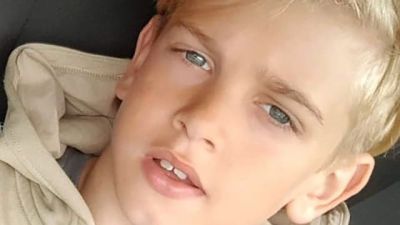Archie Battersbee judge Mr Justice Hayden calls for re-think on lengthy family court battles

The High Court judge who authorised the withdrawal of life support from 12-year-old Archie Battersbee, sparking a months-long legal tussle, has called for alternatives to court judgements to be found in the most sensitive cases.
Mr Justice Hayden said "protracted litigation” at the end of a child’s life could be “deeply scarring” and should be avoided if possible.
He ruled earlier this summer in the case of Archie, who died on 6 August after treatment was legally withdrawn.
He had suffered brain damage in an incident at home in April, and spent months in a coma as his parents tried to overturn the decision to switch off his life-support.
His parents, Hollie Dance and Paul Battersbee from Southend in Essex, later called for an inquiry into how his case was handled, and asked for a meeting with the health secretary to discuss how other families could be spared similar trauma.
Mr Justice Hayden, who is based in the Family Division of the High Court in London, outlined his thoughts in a written ruling on a case centred on a severely disabled five-year-old girl.
The girl’s mother had been against doctors’ plans to end life-support treatment and Mr Justice Hayden had begun considering arguments. But the judge was told, recently, how the woman had changed her mind and reached an agreement with medics, which would see the girl move to a palliative care regime.
Mr Justice Hayden suggested that lessons could be learned from the case.
“Cases of this kind properly attract great public interest,” he says, in a ruling on the case published online.
“It requires to be emphasised and to be understood that the overwhelming majority of these difficult decisions are taken by doctors and families, moving forward together by agreement.
“Recourse to the court is rare. It is, however, uncommon for agreement to be reached once a case has commenced litigation. In that respect, this case is unusual.”
He added that “protracted litigation at the end of a child’s life can be deeply scarring for all involved and where it can be avoided, it should be.
“It may be that there are lessons here which may have positive resonance in future cases.”
The legal battle over Archie Battersbee's life support, which hit international headlines, led some legal experts to suggest that there were better ways of deciding what should happen without requiring families to repeatedly attend court.
A barrister representing the woman explained she had “come to recognise” that the little girl, who receives ventilation, was “very tired”. She no longer laughed or focused on Peppa Pig programmes – and her mother did not want her to suffer more “invasive procedures”, said Gemma Taylor KC.
The judge said the decision meant the youngster’s death should be “dignified”. He praised the girl’s mother’s courage and said she must have been through a “dark night of the soul” before reaching agreement with doctors.
Mr Justice Hayden ruled that the girl, who is receiving ventilation, could not be identified in media reports of the case.
The Great Ormond Street Hospital for Children NHS Foundation Trust, in London, has responsibility for her care, and had asked the court for a decision about what moves were in her best interests.
Mr Justice Hayden has overseen a number of child life-support treatment cases in recent months.
The judge also ruled that a seriously ill six-year-old girl whose parents had escaped from Syria could move to a palliative care regime.
He also ruled that ending treatment was in the best interests of a brain-damaged baby, who tried to breathe after doctors said he was dead.
Want a quick and expert briefing on the biggest news stories? Listen to our latest podcasts to find out What You Need To Know